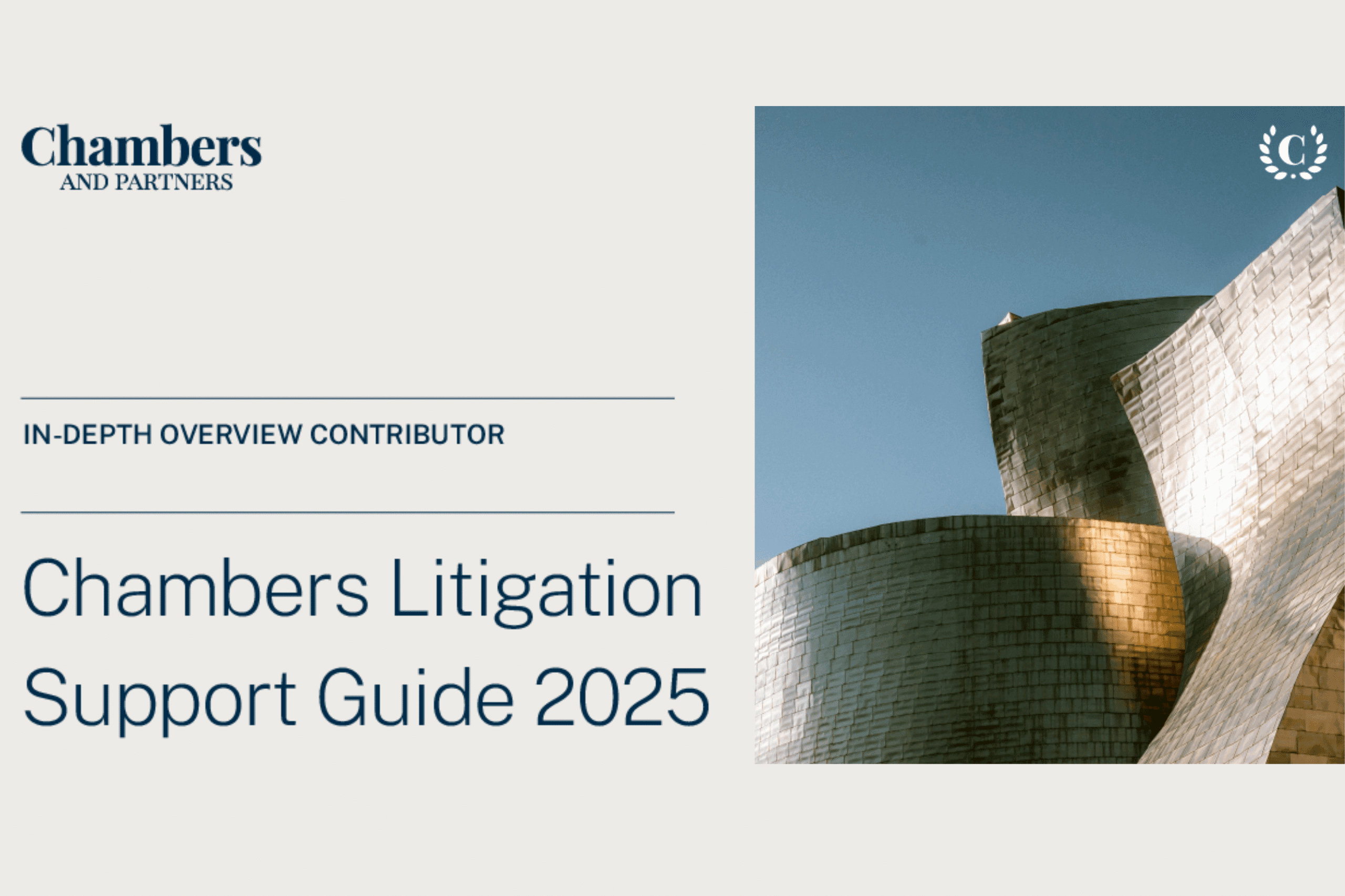In the News: In this article, first published in Litigation Finance Journal, our CEO, Byron Sumner, delves into the world of Capital Protection Insurance (CPI), breaking down the basics and explaining how it works, who it protects, and the benefits it offers.
Byron also examines how the rise of CPI is reshaping the litigation funding industry and how Ignite will play a role in that ongoing story.
An LFJ Conversation with Byron Sumner, CEO and Co-founder, Ignite
6th November 2023
Byron Sumner is the CEO and Co-founder of Ignite, a specialist litigation insurer built on its founding members’ significant litigation and reinsurance expertise. Ignite offers large capacity limits on ‘A’ rated paper across various case types, along with an extensive product suite tailored to each stakeholder’s unique needs. Their solutions range from straightforward contract disputes up to multi-billion pound international arbitrations.
Ignite’s mission is to transform the legal expenses insurance experience by providing swift and simplified solutions, transparent communication, tailored problem-solving, and unwavering support to help clients achieve their desired outcomes.
Byron’s experience over the past decade includes a plethora of cross-class responsibilities within the (Re)Insurance industry, having held both analytical and transactional roles at several leading insurance organisations, including Argo Syndicate 1200, Chubb, and Aon. As well as founding an analytics and targeted client acquisition business,
Byron has supported the capacity acquisition, product development, and growth strategies of several market leading MGAs. Byron’s commitment in the co-founding of Ignite is driven by a strong appetite to further develop the harmonisation of Insurance and Commercial Litigation.
Below is our LFJ Conversation with Byron Sumner:
1) Can you please provide the basics on Capital Protection Insurance (CPI)? At its most basic level, how does it work, whom does it protect, and what are the benefits?
At its core, a CPI policy safeguards an agreed portion of a funder’s outlay. A CPI policy can be purchased for a single piece of litigation, or across several litigation assets that form a portfolio of investments. Simply put, if the agreed portion of capital is not generated by a specified date outlined in the policy wording, the insurer is obligated to pay a claim in line with the deficit between the funder’s return and the policy’s limit of indemnity. The benefits of CPI go beyond the scope of most conventional insurance products, which primarily focus on the provision of ‘sleep easy’ downside protection. When leveraged efficiently, CPI offers litigation funders the opportunity to unlock a wider pool of potential investment partners and more attractively priced debt capital.
2) How does the rise of CPI within the legal services landscape impact litigation funders when it comes to their case selection and underwriting approach?
The CPI policy does not intend to allow funders to dilute their DD approach to cases. Ignite collaborates with top-tier litigation funders who are not only expected to maintain the same high level of DD, whether insured or not, but are also obligated to adhere to specific case selection criteria and other underwriting processes to satisfy the policy’s requirements. Eligible only for discerning customers, Ignite’s CPI policy is designed to be a highly utilisable safety net in the event of an unexpected loss rather than an instrument employed to eliminate legitimate litigation risk in its entirety.
3) What would you say the interest level is from litigation funders around your CPI product? What sorts of questions are they asking you / what concerns do they have - and how do you allay those concerns?
Interest in CPI products has steadily increased over the past three to five years. While most prospective insured partners encountered by Ignite are funders seeking to protect a portion of their capital, we now see requests for additional cover such as insured premiums and ‘upside protection’, which involves ensuring the return of a portion of capital in excess of the principal investment (>1X MOIC).
The primary concern of litigation funders and their LPs/financiers regarding CPI revolves around the insurer’s ability to pay a claim in the event of a large loss. This concern is largely mitigated by Ignite’s capacity partners’ A- rating and market-leading internal underwriting team. Through adept policy structuring and procedural stipulation, we reduce the risk of a lost case to a minimum.
4) When Ignite partners with litigation funders, what criteria are you looking for in your diligence?
Ignite’s DD is extensive, and underwriting portfolio CPI ‘wrappers’ is a more complex, bespoke process when compared to single case, open market policies. Transparency is critical to the process; working in partnership with its prospective customers, Ignite’s underwriting team will initially explore a fund manager’s historical track record, as well as their internal experience and expertise, including that of their investment committee. To gain an early understanding of viability, Ignite’s team also evaluates a funder’s IRR and MOIC expectations underpinned by their assumptions around case success rate and associated recoverability.
5) How do you see the continuing emergence of insurance products within the litigation funding sector contributing to the evolution of litigation finance over the coming years, and how will Ignite play a role in that ongoing story?
Utilisation of insurance is still a relatively new concept to many funders, particularly in the context of CPI over more traditional ATE products such as adverse costs cover. I am confident that insurance products will play a significant role in the future of litigation funding and Ignite’s increased receipt of insurance applications unequivocally attests to this upward trend. A CPI policy can not only facilitate a reduced cost of capital for funders, but also unlock the litigation asset class through the utilisation of an investment grade rating for traditionally risk-averse investors such as pension funds and insurance companies. As a result of the growing harmonisation of insurance and commercial litigation, I anticipate a greater influx of appropriately priced capital and access to justice for those claimants/plaintiffs with meritorious claims.
Ignite will continue to play a leading role in this evolution by providing specialist insurance products that fulfil the needs of our customers. Ignite’s offering, which itself is always evolving, aims to work back-to-back with funders on baskets of cases which are cross collateralised, allowing insurers to benefit from the familiar benefits of diversification.
6) As litigation funders explore new avenues to mitigate risk, the role of insurance products like CPI becomes increasingly significant. Could you share some insights into how Ignite caters to the needs and expectations of litigation funders in this changing environment?
Ignite dedicates a significant amount of time and resources to developing a profound understanding of its target market. The company collaborates closely with some of the world’s premier funders to explore innovative and well-established strategies to assist in the management of their portfolios to utilise their capital more efficiently to drive better returns for all stakeholders. Ignite’s success is intricately linked to the success of its insureds, and this dynamic serves as a solid foundation for future collaborations. For example, this strong working relationship typically manifests in the seamless adaptation of standard policy documentation to cater to the specific individual needs of the funder client. Ignite consistently maintains a sharp focus on delivering a catalyst for an increase in successful case outcomes, which, ultimately benefits plaintiffs and claimants.



